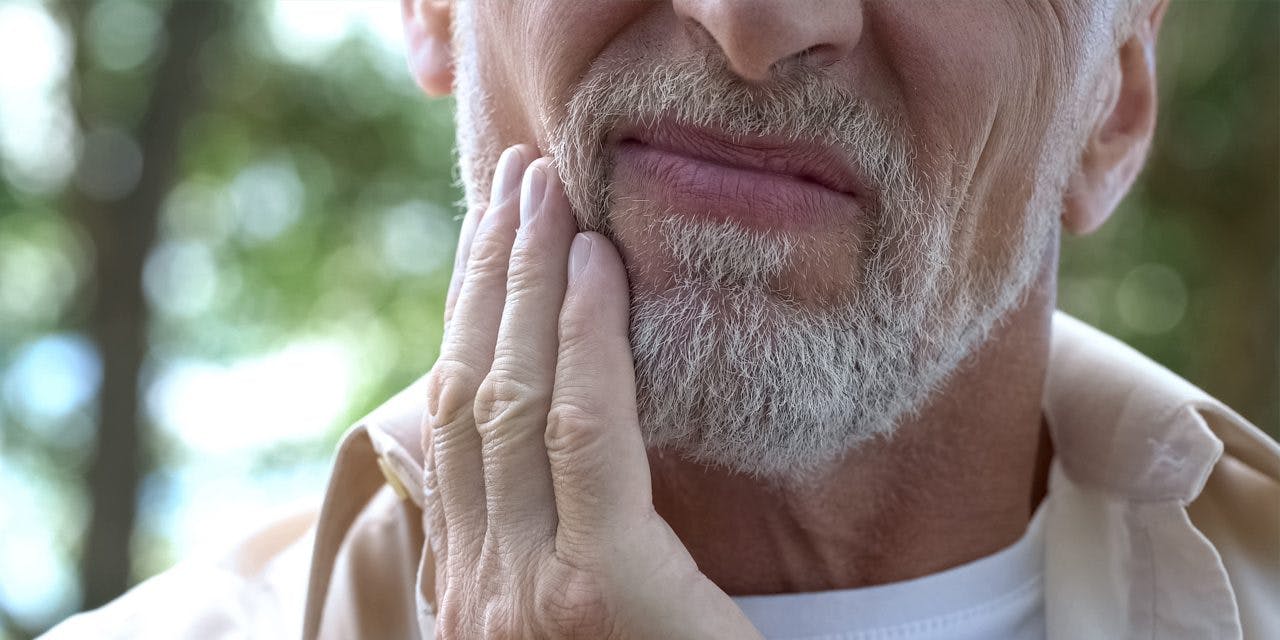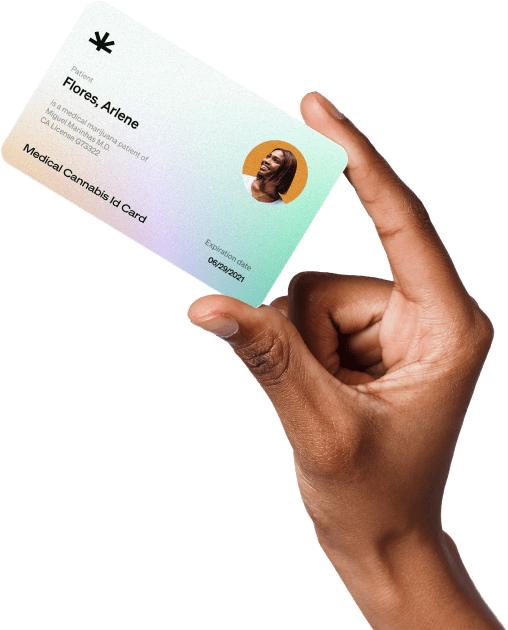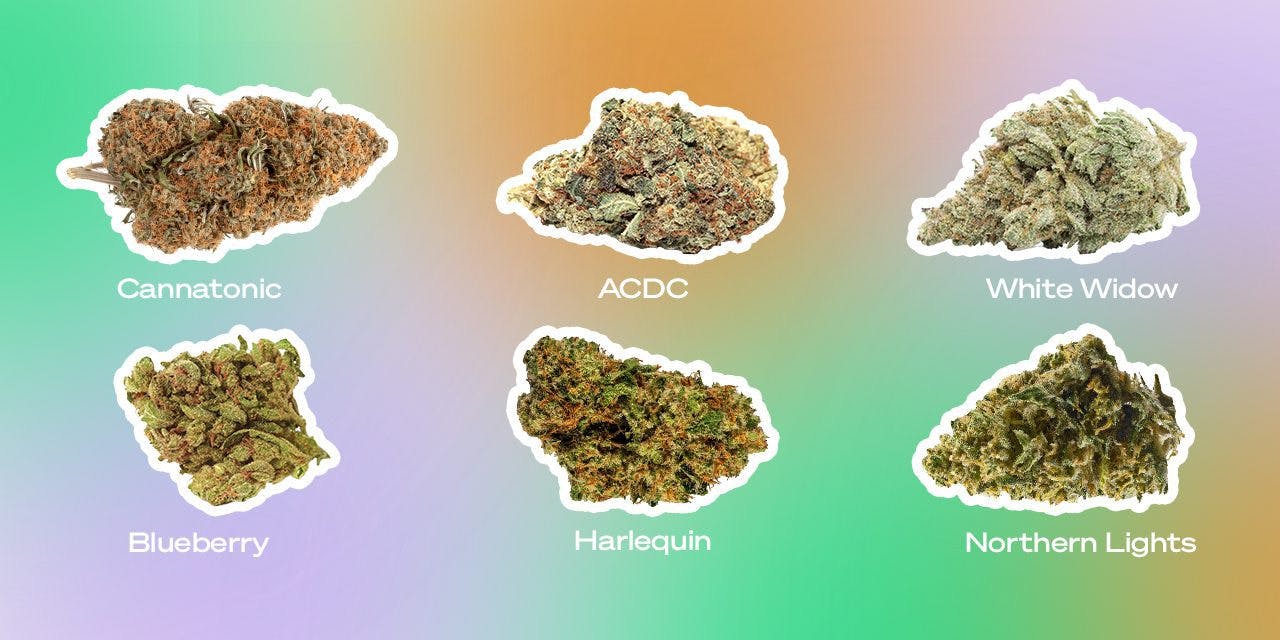Can Medical Marijuana Reduce TMJ Pain?

Article written by

Shanti RyleContent Writer
Content reviewed by

Dr. Lewis JasseyMedical Director - Pediatric Medicine
Well-known for its pain-relieving properties, medical cannabis attracts many patients as a non-opioid remedy for inflammatory or pain-related responses. Pain is one of the main symptoms for which people use medical marijuana, making it a promising option for those seeking to reduce the muscle and jaw pain associated with temporomandibular disorder/dysfunction (TMD) and TMJ pain.
This guide explores TMJ and its symptoms, how medical marijuana can help soothe TMJ and what patients need to consider when seeking cannabis-based remedies.
Get Your Medical Card
Connect with a licensed physician online in minutes.
What Causes TMJ?
Temporomandibular joint disorder, or TMJ for short, is an uncomfortable condition that can cause muscle spasticity in the face. The condition makes it difficult to open and close one’s jaw, known as the temporomandibular joint. Muscles tense in the face, and attempts to stretch or move them are often painful.
Injury, arthritis, teeth grinding and stress, or other misalignments in the jaw can cause TMJ. In rare cases, TMJ arises as a symptom of shingles.
Symptoms of TMJ often include:
- Stiff jaw muscles
- Headaches or earaches
- Swelling in the face
- Pain spreading throughout the face, eyes and neck
- Locked jaw or inhibited movement
- Painful popping or clicking in the jaw
- Misalignment of teeth in the upper and lower jaw.
While TMJ can often go away on its own with ice packs or by eating only soft foods, some more severe pain symptoms can require medical treatment. Dentists diagnose the cause of the TMJ with an exam and are able to recommend treatments such as over-the-counter pain relievers, mouth guards or physical therapy.
How Marijuana Helps with TMJ
Medical marijuana is thought to soothe chronic pain associated with TMJ – and indeed many other sensory experiences of pain – by interacting with the endocannabinoid system (ECS). The ECS regulates many homeostasis processes in the body, including pain processing, via CB1 and CB2 receptors, which interact with cannabinoids.
Many studies have established cannabis as pain-relieving and anti-inflammatory. THC from marijuana acts on CB1 receptors in the brain to regulate the sensation of pain in the body. It also works to a lesser extent on CB2 receptors in immune cells, responsible for modulating inflammatory processes.
We still lack conclusive evidence that cannabis is a reliable treatment for TMJ-related pain. However, a recent study showed that low doses of cannabinoids could impact pain-relieving activity in receptors related to TMJ pain, pointing to a promising ability to provide pain relief to individuals suffering from disorders. The same study also implicated other cannabis capabilities to soothe TMJ disorder pain, which is controlled by CB1 and CB2 receptors.
In another study examining muscle spasticity in patients with multiple sclerosis, approximately 50% of respondents experienced relief from spasms when they used medical marijuana. While MS spasticity originates in the brain rather than the muscle itself, those with a TMJ disorder may also find twitching relief through medical cannabis.
CBD also shows a promising capacity to soothe pain from temporomandibular joint disorders, due to its ability to inhibit pain signals from interacting with CB2 receptors and alleviate inflammatory responses. As an anti-inflammatory agent, CBD could successfully reduce discomfort in conditions that impact the temporomandibular joint, including pain in the face and jaw tension.
Download Free Guide to the ECS
How to Use Cannabis for TMJ
We still lack research to understand the best ways to use medical cannabis for TMJ. Determining which cannabinoids to take, at what doses, and in which combinations to be most effective in soothing TMJ pain depends entirely on the patient and their endocannabinoid systems.
There are various consumption methods to try for treating TMJ disorder, and some may be more effective than others for one’s unique situation.
More immediate methods of accessing pain relief are smoking and vaporizing medical cannabis, which delivers cannabinoids directly into the bloodstream via the lungs and lasts for up to an hour or two (sometimes longer) after use. Alternatively, edibles and tinctures provide more potent relief with lower doses since they’re processed in the liver, with effects lasting for up to five hours or more. However, for immediate pain relief, inhaling cannabis may be preferable to eating it, as edibles can take around 1-2 hours to take effect.
Cannabis topicals may also be helpful in soothing TMJ. Applying topicals to the face or neck allows cannabinoids to be absorbed into the skin and work on the local cannabinoid receptors at the pain site.
Many people use a variety of cannabis products at different times of day, using different administration routes. There is no one “best” way to utilize medical or therapeutic cannabis, and different types of pain may require different approaches to treatment.
Best Cannabis Strains for TMJ
These promising strains (cultivars) for soothing TMJ disorders focus on relieving pain, spasms and inflammation:
- AC/DC
- White Widow
- Harlequin
- Blue Dream
- Bubba Kush
However, it is often best to look at the cannabinoid-terpene profile of the strain you’re purchasing, rather than just the name, as this will give you a better indicator of the effect it may have.
Get Your Medical Card
Connect with a licensed physician online in minutes.
Frequently Asked Questions
Does smoking marijuana help TMJ?
While we lack clear research examining cannabis’ effects on TMJ, plenty of evidence supports marijuana as an effective remedy for soothing pain, inflammation and muscle spasticity. Anecdotal accounts report MMJ as an effective tool for managing TMJ-related pain.
Whether smoking cannabis is the best method of consumption is arguable due to the potential adverse health effects of inhaling smoke of any kind, but some may need to inhale it in order to get the immediate pain-relieving effects they require.
Will CBD help TMJ pain?
Using CBD could be helpful for managing many kinds of pain, which suggests efficacy for soothing TMJ pain as well, such as with myofascial pain and locked jaws. However, CBD’s efficacy for pain treatment could be injury- or disease-specific, so more research is needed on CBD for TMJ pain.
How much CBD oil should I take for TMJ?
The amount of CBD required to treat pain from TMJ disorders depends entirely on the individual, their experience and their endocannabinoid system. Try a small amount and experiment gradually using larger and larger doses until you find what works best for you.



